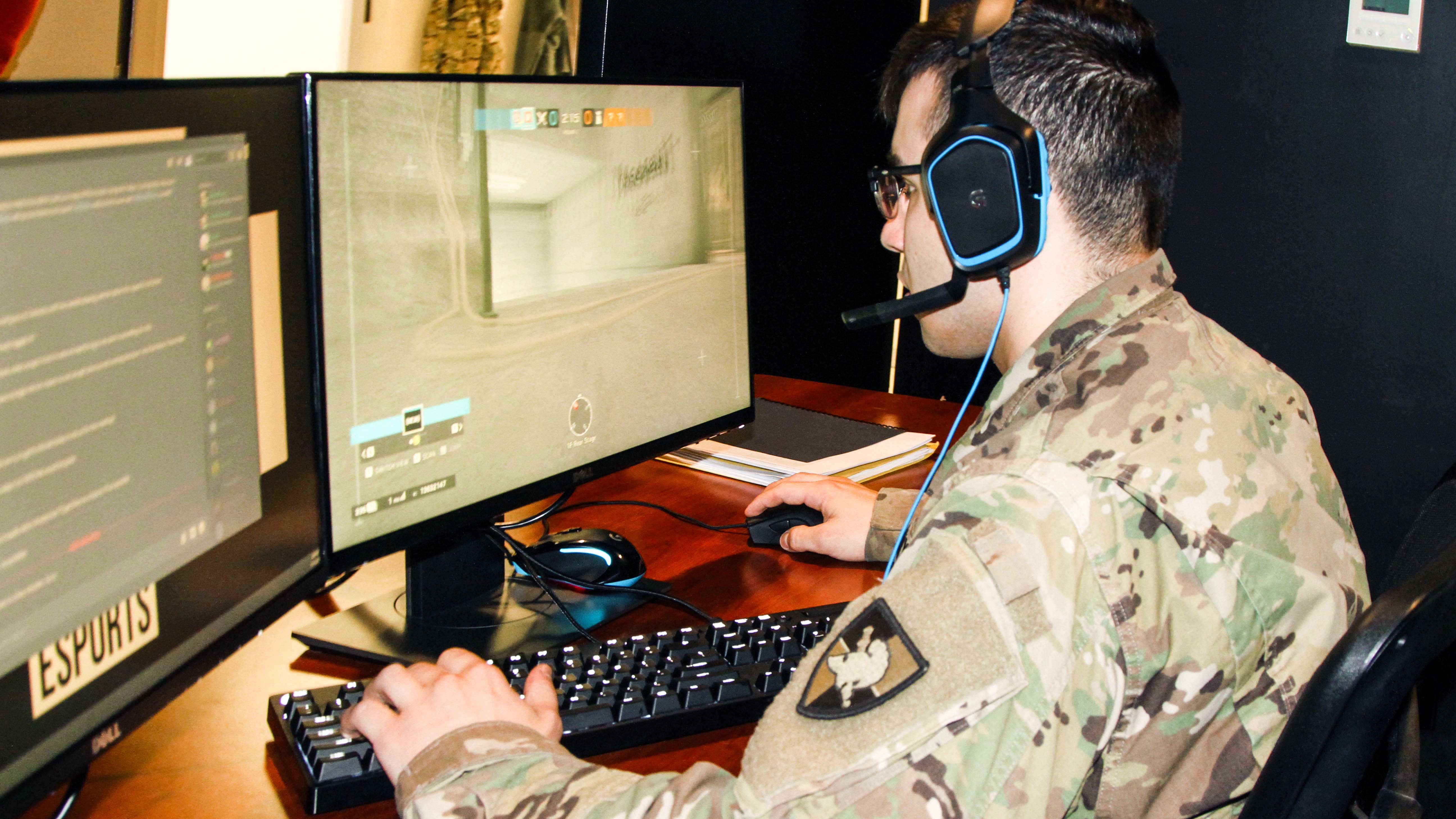Broader Reach Will Benefit Army Esports, Recruiting
Broader Reach Will Benefit Army Esports, Recruiting

The Army’s esports team has helped to generate recruiting leads through its virtual platform, but it could reach a broader audience by making some adjustments to its approach, according to the authors of a paper on military electronic sports teams.
Esports engaged close to 500 million viewers in 2020, a viewership leveraged by the Army and its sister services to reach young people, according to the paper, “Esports and the Military,” published by the Center for a New American Security.
The Army established its esports team, one of several outreach teams under Army Recruiting Command, in 2018. Since then, the team has helped expand the Army’s online recruiting presence, reaching a target audience of 17- to 24-year-olds with multiplayer, first-person shooter games.
While the soldiers on the Army Esports Team are not recruiters per se, they are part of an outreach team that sits under the Marketing and Engagement Brigade of Army Recruiting Command at Fort Knox, Kentucky, the paper explains.
In some ways, it’s a sound business decision to use the most popular games that reference basic military skills, but their exclusive use may limit outreach, the authors write, pointing out that the audience is mostly white and male.
To reach women and minorities, the services should consider other types of gaming categories as women are less likely to play the first-person shooter or multiplayer online battle arena games, write authors Elizabeth Howe, Elena LoRusso and Emma Moore.
“While women and men are nearly equally represented in esports, women are underrepresented in the platforms the services currently use. Furthermore, at a time when the services … are seeking to recruit individuals with backgrounds in science, technology, engineering, and math (STEM), they may be missing those individuals in prioritizing first-person shooter games,” they write.
The authors also note that digital literacy among gamers does not always equate to other forms of technical talent, such as proficiency with cyber security. Esports, the authors assert, is in many ways an extension of social media, which does not require cyber skills.
The Army could broaden its online outreach to other types of virtual activities to identify people with specific skills, such as coding, they write.
Read the full paper here.

